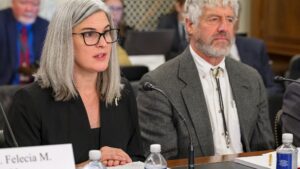While one area of the world strives to keep funding resources to maintain a national treasure, other areas such as Africa and Thailand, work to develop capacity and build new facilities.
STATUS AFRICA
In mid-December, the African Plant Breeding Academy graduated 23 botanists from 11 African countries and 21 institutions. The botanists were the first group to be trained on crop improvement and developing neglected and orphaned crop plant materials that are necessary for food security and nutrition.
“I have been exposed to the use of modern molecular approaches in plant breeding and I will share the knowledge I have learned with my fellow scientists,” says John Onditi, a potato breeder from Karlo Tigomi, Kenya. “I will be able to incorporate many crops and especially orphaned crops that so far have no information that can be used as a baseline for studying and improving them.”
Orphan crops are crops that are under-researched and undervalued by decision-makers because they are considered not of economic importance. Yet they are vital sources of nutrients, resilient and adapted to environmental stress and local conditions.
World Agroforestry Centre Director General Tony Simons says there is a long history of improving plants. “In the 1960s, when the world faced chronic food shortages, that is when the Green Revolution was created,” Simons says, explaining that it had an enormous impact in Asia and Latin America. “Africa missed out because of the level of investment, infrastructure, capacity and ability to use those techniques was not there. More recently, we have had initiatives in Africa to try and change this, for example the Alliance for a Green Revolution in Africa, which combines opportunities and science for accelerated plant breeding. But if we are to use these techniques, we need capacity.”
Simons notes that there is a lot of capacity in Africa but it needs to be developed and mobilized.
Rita Mumm, an associate professor emerita at the University of Illinois at Urbana-Champaign who teaches with the University of California, Davis, Plant Breeding Academy, says the program will help students develop a paper about guidelines for breeding orphaned crops that would be submitted to a scientific journal.
Howard Shapiro from MARs Incorporated, which funds the academy, reports that only 57 plants in the world have been genetically sequenced.
“We are adding another 101, and with the training, the breeders have the ability to make decisions about plant breeding quicker, which will lead to better plants,” Shapiro says. “This is a huge leap for the diversity and sustainability of African agriculture and the start of a very different future for rural and urban food consumption patterns.”
According to the New Partnership for Africa’s Development (Nepad), the first orphan crop to be sequenced was the baobab or wonder tree, which can be dried to produce fruit powder. It has 10 times the antioxidant level of oranges, twice the amount of calcium than spinach, three times the vitamin C of oranges and four times more potassium than banana.
The African Plant Breeding Academy is part the African Orphan Crop Consortium.
STATUS Thailand
Thailand’s Princess Maha Chakri Sirindhorn has instructed the Royal Thai Air Force to set up a centre to breed and preserve rare plants on Doi Inthanon National Park in Chiang Mai.
The air force will use areas around its air defense system station and areas near two pagodas on top of the mountain to set up the breeding and conservation centre.
The princess says the cold climate on the mountain is suited to grow winter-blooming plants and trees, says Treetos Sonjaeng, Air Force Chief. Doi Inthanon is the country’s highest peak in Chiang Mai.
The air force will experiment growing sakura trees. Construction of the plant breeding centre is expected to be complete by April 2.
STATUS United Kingdom
Deputy Prime Minister of the United Kingdom and Lord President of the Council, Nick Clegg, announced an additional £2.3 million in funding to support research at Kew Royal Botanic Gardens.
Clegg pledged £1.5 million extra cash to Kew in September to help plug a £5 million budget hole that was costing 125 posts, mostly in science.
The additional funds mean Kew is supported by the government until April 2016 and will be able to apply for other government loans to maximize income.
“Kew is so much more than a garden and green space; its reputation as a botanical research base and centre for science is world-renowned,” Clegg says. “Balancing the books in this country has meant budgets are tight, but I’m delighted to be able to commit continued funding for Kew as both a leading research hub and beautiful tourist attraction.
“Supporting scientific excellence in the UK is a key part of strengthening Britain’s economy, and this government is focused on enabling research and development work to prosper across the country. This funding will support scientists to continue their world-class work at Kew safe in the knowledge that this government supports their vital work and is committing funds to support it.”
The announcement comes on the day Member of Parliament Zac Goldsmith secured a parliamentary debate at Westminster Hall on the planned cuts to Kew, and the day ahead of the select committee hearing.
“We welcome this government recognition of Kew as the global resource for plant knowledge and the world’s leading botanic garden,” says Richard Deverell, Kew director. “This money will go some way towards managing our journey to a sustainable financial future. However, Kew is seeking greater stability in our government funding. An assured long-term funding settlement would be invaluable for effective planning, reduce volatility and would allow us to come out of this transition phase on a firmer footing, with a clear strategic vision.
“Kew needs long-term certainty so it can restructure itself for a sustainable future. Kew is one of the most amazing things we have in the country. It’s a national treasure — it has seven million plant specimens, two million visitors a year and it’s impossible to exaggerate its importance to the world’s scientific community. It is at the very cutting edge of research into food security and climate change, and it is hard to square that work with the steepness and depth of the proposed cuts.”
STATUS United States
The Chinese government is expected to release its decision on importation of Syngenta’s Agrisure Viptera corn (MIR 162) from the United States soon. Some say China has already approved the trait, but officials, who are waiting to receive formal notification, are reluctant to announce it. The approval is critical because U.S. corn trading with China has stopped since Beijing began turning away cargoes containing the Viptera trait in November 2013.
Syngenta filed for import approval with Chinese officials in March of 2010 and has since been waiting — for more than four years. It wasn’t until two years after commercialization, in November of 2013, that China began rejecting shipments of corn because it had detected the presence of MIR 162 or Agrisure Viptera. Since then, Cargill says that China has virtually halted corn trade with the United States.
As a result, on Sept. 12, 2014, Cargill filed a lawsuit against Syngenta Seeds for commercializing Agrisure Viptera, MIR 162, corn seed prior to obtaining import approval from China. Cargill claims losses of $90 million as a result of the launch of the traits without Chinese approval.
According to the National Grain and Feed Association, the rejections of shipments containing MIR162 cost losses of approximately $2.9 billion.
If officials receive formal notification from Chinese authorities that Agrisure Viptera has been approved, it’s unclear if the decision will impact the lawsuit filed by Cargill. Chuck Lee, Syngenta North America head of corn, says that the company not only launched Viptera with full legal regulatory compliance, but the company also had key stakeholder approval from organizations, such as the National Corn Growers Association.
















